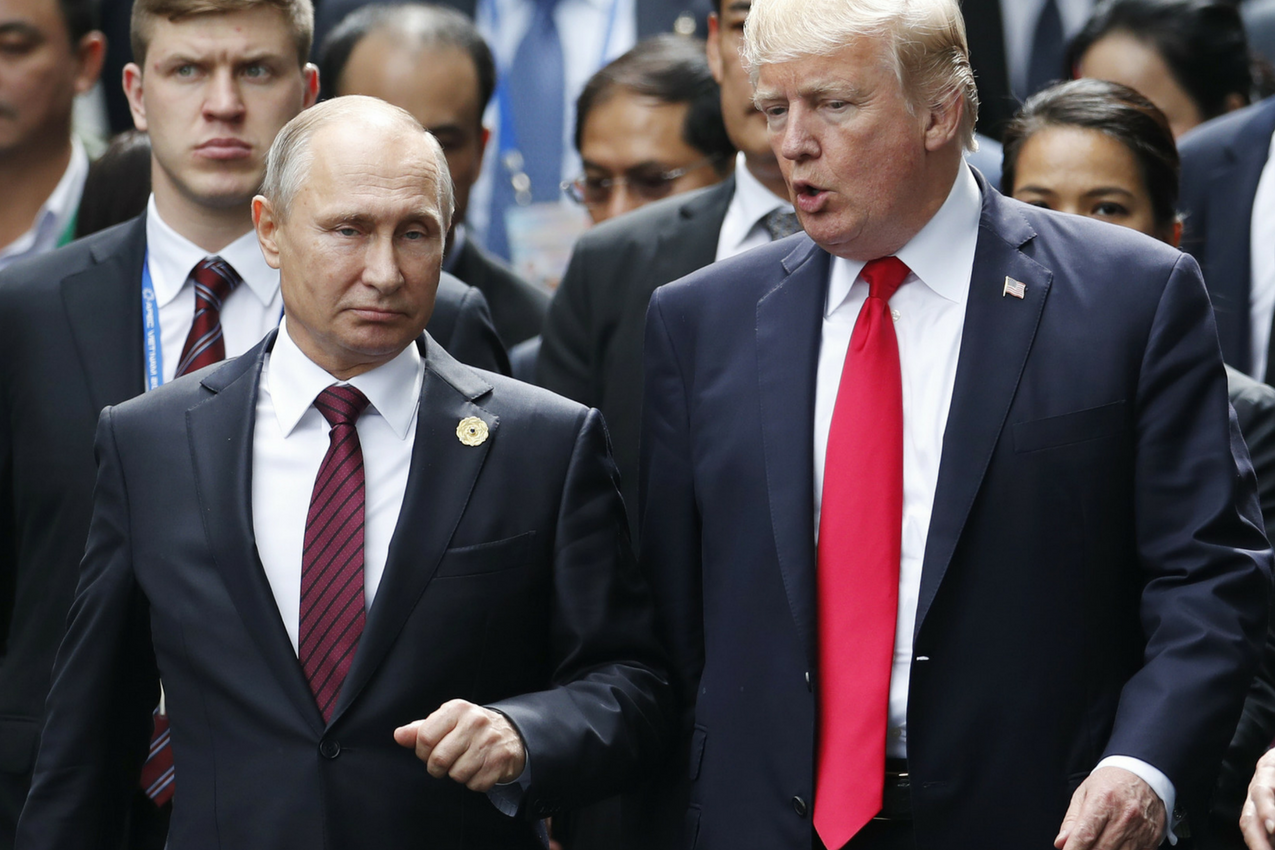This Monday, Russian President Vladimir Putin and his U.S. counterpart Donald Trump are meeting in Finland for their first one-on-one summit.
Both Presidents have their work cut out for them and are probably carrying different expectations for what this Summit will result into. Relations between Russia and U.S.A are currently experiencing a low that has not been seen since the Cold War.
Analysts from both countries are making all sorts of predictions for the flow of the summit and the topics that could arise.
From Moscow’s perspective, the fact that the meeting is happening at all is already a win for the Kremlin, which has long sought a summit but has been pushed back by Washington, according to analyst Andrei Baklitsky.
The conflicts in Syria and Ukraine, as well as alleged meddling in the US election and Western sanctions are bones of contention between the countries. Baklitsky is expecting a few “ground-breaking decisions” from this summit.
Political analyst Alexei Malashenko suggests that President Putin might try to convince President Trump to take a “more flexible” position on the tackling of war-ravaged Syria in the hope that Washington will try to be less active in the country.
Any compromise on the war-inflicted region will be seen as a victory for Moscow
It is predicted that the United States will make attempts to convince Russia that it is better if Iranian forces leave Syria. However, President Putin might not really be ready to jeopardise his relations with Tehran over this issue, Malashenko added.
The on-going Syrian crisis is however, a much easier topic for both to discuss rather than the current conflict in the East of Ukraine, which is a much more sensitive issue for Russia.
In terms of the allegations of Russia meddling with the general election for U.S.A’s President, Baklitsky said Russia will be outright denying interfering in the 2016 US Presidential vote that brought Donald Trump to power.
On the other hand, U.S. analysts are suggesting that for President Trump, the value of this Summit lies in being able to put himself at the center of U.S. foreign policy.
Read: New Complex of Indian Embassy Inaugurated in Bahrain
“He wants to be perceived as the one who makes these decisions, that he makes them unilaterally, that he is the crucial dealmaker,” said William Pomeranz, deputy director of the Wilson Center’s Kennan Institute.
Pomeranz is anticipating the summit to result in a joint statement.
Alina Polyakova, a foreign policy fellow at the Brookings Institution in Washington, agrees that Trump will use the summit as an opportunity to boost his domestic standing.
“What will Trump be able to sell as a win with Russia? Basically that ‘Obama has screwed up this relationship and I’ve made it right’,” she said.
It is less likely that Trump might try to strike a grand bargain with Russia to bring back something. Such as recognition of Russian-annexed Crimea, in return for Moscow using its influence to get Iranian militias out of Syria, Courtney said.
According to Olga Oliker, who is a senior adviser and director of the Russia and Eurasia Program at the Center for Strategic and International Studies, there are three mutually beneficial topics the two leaders can discuss—
Extension of the new START arms reduction treaty; protection of the Intermediate-Range Nuclear Forces Treaty, and the establishment of better military-to-military communication.









